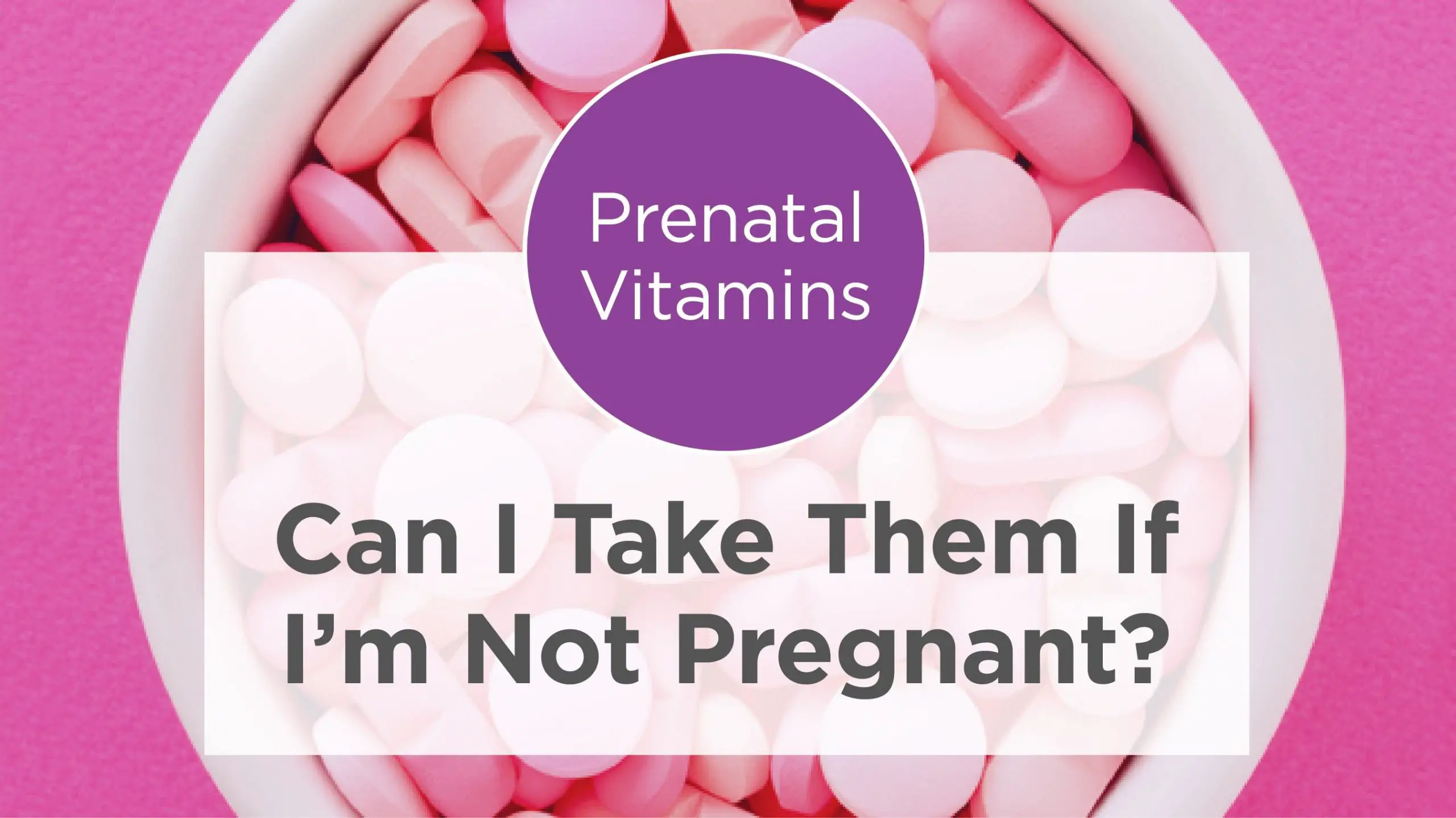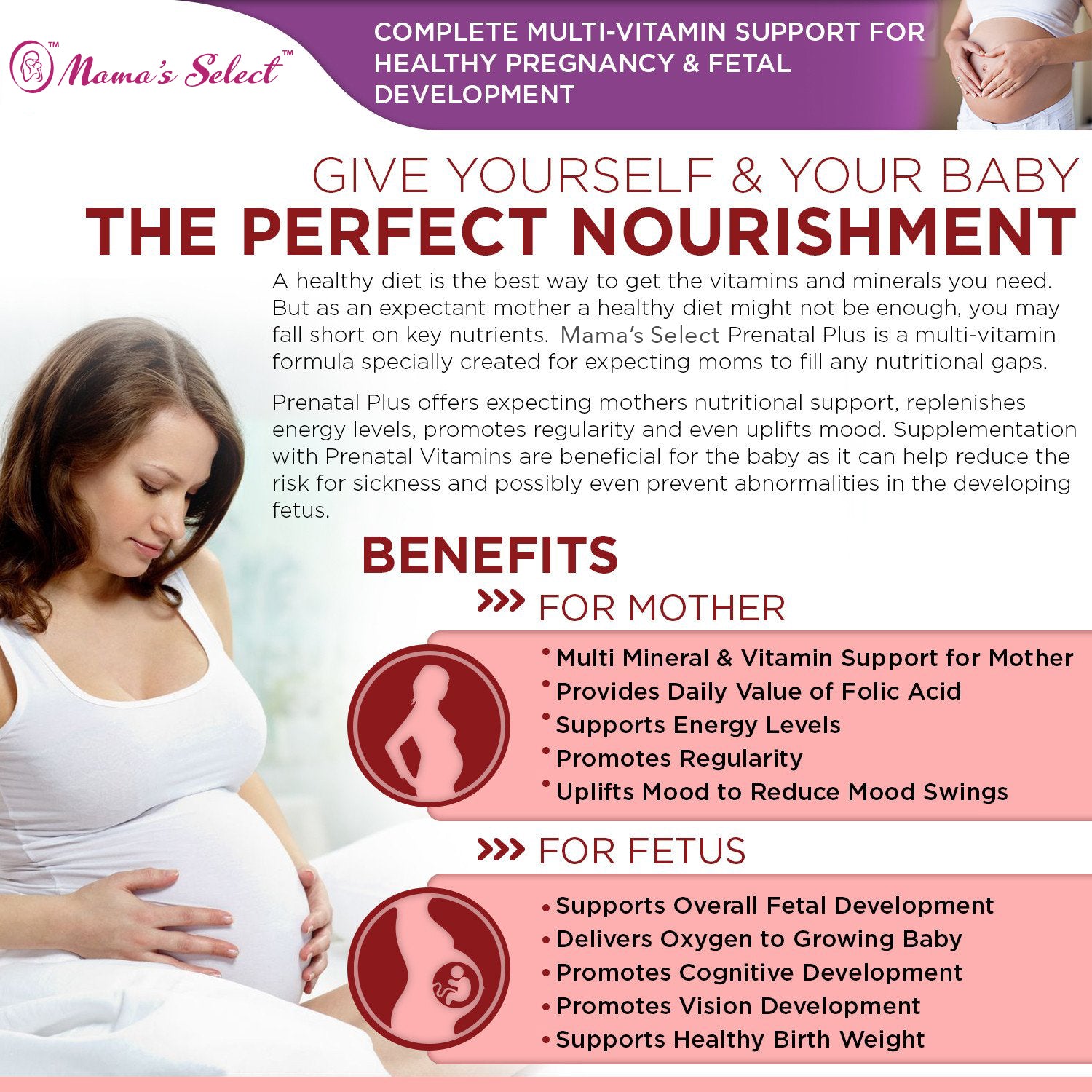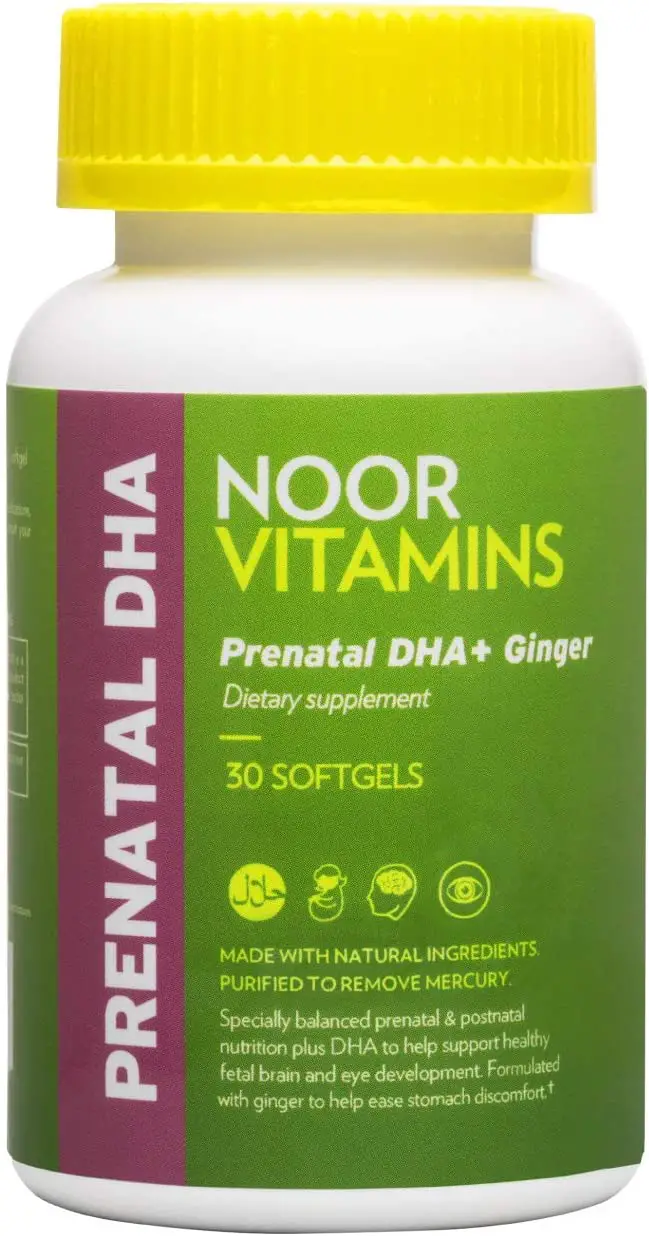What Are Prenatals Used For
Prenatal vitamins are intended to provide the nutrients needed for proper development during pregnancy. There are suggestions that other benefits, such as hair growth, can come from taking prenatal vitamins, but these claims are based upon correlations and have not been proven by the Federal Drug Administration .
Benefits of prenatal vitamins
Taking prenatal vitamins can aid in a healthy pregnancy and proper baby development. These are the primary benefits though you may see other benefits as well. Common ingredients in prenatal vitamins include:
- Folic acid to prevent birth defects impacting the brain and spinal cord
- Vitamin D to help develop bones, teeth, and kidneys
- Calcium to promote bone growth
- Vitamin C to help absorb iron
- Zinc to aid in the development of the baby
- Iron to promote healthy development
- Iodine to prevent stunted physical growth and mental disabilities
When Should I Start Taking Prenatals
Since birth defect risks of the brain and spine can occur in the very first month of pregnancy, we recommend taking prenatals as soon as you start trying to conceive.
If youre struggling to conceive, prenatals can help as well. A Harvard School of Public Health study showed that women who took a daily multivitamin with 400 mcg of folic acid were 40% less likely to experience ovulatory infertility.
Many women continue to take prenatals through their pregnancy and after, until they finish breastfeeding.
Whats The Best Prenatal Vitamin For Me
For the majority of women, a basic over-the-counter prenatal vitamin combined with a healthy diet will help them meet the majority of their nutritional needs. Always talk to your doctor first though. If you have other nutritional deficiencies or related conditions, they may prescribe specific supplements for you to take during pregnancy.
There are many different prenatal vitamin choices available. Some are made to be compatible with vegetarian and vegan diets. They also come in organic, gluten-free, and sugar-free varieties. Some pregnant women find pills difficult to swallow and prefer brands that come in a smaller size or are chewable. Some find that the gummy chewables are easier to tolerate with the nausea of pregnancy. A number of prenatals contain ingredients specifically for those with morning sickness. Your healthcare provider and their staff are experts in matching you with the right prenatal vitamins and supplements best for you.
To learn more about preparing for your a healthy pregnancy, contact one of our fertility clinics in Mandeville, Metairie, Baton Rouge, and New Orleans today!
You May Like: When Do You Apply Vitamin C Serum
How To Manage Side Effects
The easiest way to sidestep prenatal vitamin side effects is to try a different brand.Not every prenatal vitamin is the same, Dr. Valent says.
If that doesnt cut it, change up when you take the vitamin: It might go down better in the afternoon than in the morning when youre more reactionary, or after a meal that contains good fats or citrus, which help optimize the absorption of some nutrients, she says.
You can also halve your pills and take one half in the morning and one half in the evening, orwith your healthcare provider’s approvaltry taking the pills every other day, Dr. White suggests.
But at the end of the day, if you simply find it challenging to swallow larger pills, you can always take individuals, Dr. Valent says. Just talk to your healthcare provider about which ones you need in addition to folic acid.
Vitamin Angels’ Global Prenatal Initiative

Vitamin Angels is spearheading a global effort to reduce newborn mortality rates by scaling up its prenatal vitamin and mineral program to meet the needs of 50 million women annually by the year 2030. With an estimated 7,000 newborns dying daily per data released by UNICEF, Vitamin Angels is rallying support to address the pressing need. To further accelerate impact and create lasting change, Vitamin Angels focuses on creating demand for MMS, ensuring a global supply of MMS, influencing policy change regarding MMS in low and middle-income countries, and connecting at-risk pregnant women with MMS.
Read Also: What Foods Have Vitamin B3
Where To Get Pregnancy Supplements
You can get supplements from pharmacies and supermarkets, or a GP may be able to prescribe them for you.
If you want to get your folic acid from a multivitamin tablet, make sure the tablet does not contain vitamin A .
You may be able to get free vitamins if you qualify for the Healthy Start scheme.
Find out more about the Healthy Start scheme.
Is It Ever Helpful To Take More Than The Recommended Dosage Of Prenatal Vitamins
Please do not take more than the recommended dosage of prenatal vitamins. Depending on the brand, the recommended dosage may be one or more capsules daily. Please dont take any additional supplementation of those vitamins, either, unless you have been specifically told to by your OB/GYN. Taking more than the recommended dosage of some vitamins could actually be harmful to your baby.
You May Like: What Vitamins Should A Woman Over 55 Take
What Should You Look For In A Prenatal Vitamin
Certain vitamins are crucial for supporting specific areas of a babys development and preventing birth defects. Your body especially needs extra folic acid for preventing brain and spine birth defects and iron to help make blood and deliver oxygen to the fetus. Other vitamins are important to supplement as well.
The American College of Obstetricians and Gynecologists recommends the following vitamins in the specified recommended daily amounts via diet and/or supplementation leading up to, during and after pregnancy:
- Folic acid : helps to build a normal brain and spine, as well as general growth of the baby and your placenta.
- Iron : helps red blood cells deliver oxygen to your baby.
- Calcium :: helps build strong bones and teeth.
- Vitamin D : helps with development of bone, teeth, eyes, and skin.
- Choline : helps with brain and spinal cord development.
- Omega-3 fatty acids : supports brain development.
- B vitamins : both help with making red blood cells.
- Vitamin C : helps with developing healthy gums, teeth, and bones.
- Iodine : helps with brain development.
- Vitamin A : helps with skin, bone, and eye development.
Youll want to look for a prenatal vitamin that contains enough of these vitamins in the ingredients to supplement what youre consuming in your regular diet so that you can reach the recommended daily amounts.
Can I Take Prenatal Vitamins If I Dont Want To Get Pregnant
Prenatal vitamins are specific to the needs of pregnant and breastfeeding women. Theyre geared to make up the common nutritional deficiencies a pregnant woman could have. But they arent really intended for women who arent expecting or lactating.
Taking too much folic acid each day can have the adverse side effect of masking a vitamin B-12 deficiency. Excess iron can be a problem, too. Getting too much iron is associated with health problems like constipation, nausea, and diarrhea.
Excess amounts of nutrients like vitamin A taken from synthetic vitamins could be toxic to a persons liver.
Again, its better if you get these nutrients through your diet instead of a pill. For these reasons, most women should skip prenatal vitamins unless their doctors tell them otherwise.
Recommended Reading: What Does Vitamin A And D Do
What Is The Difference Between Prenatal Vitamins And Regular Vitamins
Though prenatal vitamins and regular vitamins work the same way to provide your body with micronutrients that it may be lacking there are some key differences between the two, specifically when it comes to ingredients. For example, as an article on Mom.com explains, there is a specific amount of folic acid and iron that pregnant people are supposed to have in their diet. A prenatal vitamin ensures that those exact levels are met, whereas a regular multivitamin might have some amount of folic acid or iron, but necessarily enough to meet the threshold recommended for pregnant people.
As always, it’s important that you consult a health care provider or family physician prior to taking any over-the-counter medication or starting a vitamin regimen. After all, what works for one body does not work for all. But if you do have lingering questions about taking prenatal vitamins when you’re not pregnant, here’s what you need to know:
Prenatal vitamins may help your skin and nails, but its likely that any type of vitamin with the same nutrients would be just as beneficial.
Kipping says that more than 90 percent of women arent meeting their choline needs, and 50 percent are critically deficient in vitamin D. Since fetal organs start to develop in the first couple months of pregnancy, often before some women even realize theyre pregnant, its important to give your body the nutrition it needs ahead of time.
What Are The Benefits Of Prenatal Vitamins
Before their benefits, a quick mention of what prenatals are not. Prenatal vitamins wont help you avoid risks from a completely unhealthy diet. Theyre meant to supplement an already-healthy diet full of fresh vegetables, complex carbohydrates, and lean proteins.
However, while some women may get all of their necessary vitamins and minerals in their diets, many do not. According to The Bump, 80% of people in the U.S. have diets deficient in the recommended daily doses of vitamins and/or minerals. Supplementing your diet with prenatal vitamins can promote a healthier pregnancy by replenishing your own nutritional needs and providing an optimal environment for healthy fetal growth.
The American Congress of Obstetricians and Gynecologists recommend the following four supplements before and during pregnancy, in the following daily amounts:
- Folic acid, 600 mcg, to prevent neural tube defects. Some studies suggest a benefit of doses up to 1,000-2,000 mg
- Iron, 27 mg, to help supply more oxygen to the baby and prevent iron deficiency during pregnancy
- Calcium, 1,000 mg, for an infants healthy bone growth and muscular function, and to prevent bone loss in the mother
- Vitamin D, 600 IU, to aid in calcium absorption
Recommended Reading: What Vitamins Does Fish Oil Have
Mothers Face Global Health Challenges
Wherever they are, moms share a common focus: making a better life for their children. They may take on very different challenges, but each woman’s nutritional needs increase during pregnancy to support her health and her growing child. Moms living in developing countries or with low incomes are the most vulnerable to malnutrition.
They make meals out of whats available, feeding their children before themselves. They make traditions that unite their families, passing down wisdom to future generations. They make painful sacrifices that, more often than not, go unnoticed.
| 154% |
| * Percent Daily Value for Pregnant and Lactating Women. |
When To See A Healthcare Provider

Disruptive symptoms like nausea, vomiting, constipation, and skin changes that persist after changing vitamin brands may warrant a conversation with your provider, according to Dr. White. It could indicate a problem that has nothing to do with the vitamin, she says, adding that prenatal vitamin side effects should be mild and short-lived.
Recommended Reading: Must Have Vitamins For Pregnancy
Provides With The Assurance That Your Babys And Mothers Nutritional Requirements Are Adequate
The importance of maintaining a nutritious diet throughout pregnancy is essential for the health of your unborn child. This diet should consist of meat and dairy products, vegetables and fruits, legumes, and grains. Even a balanced diet may not be adequate to protect a child and mothers health because some nutritional requirements may change during this duration.
Can You Take Prenatal Vitamins Without Being Pregnant
If youre trying to conceive, it can be beneficial to start taking prenatal vitamins at least three months before becoming pregnant. Taking prenatal vitamins before youre pregnant provides the foundation for a healthy pregnancy by providing the extra nutrients your body will need. If youre not trying to get pregnant, a healthy and varied diet will provide the majority of minerals and vitamins you need. If you arent thinking about having a baby, its unlikely that prenatal vitamins are the best option. Prenatal vitamins provide a larger amount of certain nutrients that are necessary during pregnancy, but the increased amounts may lead to issues if your body doesnt need the supplemental nutrients. We suggest speaking with your primary care provider about whats best for you. prenatal-multi-dha
Recommended Reading: Is 1000mg Of Vitamin C Safe
Giving Daily Prenatal Vitamins And Minerals To Pregnant Mothers Helps Ensure Healthy Pregnancies And Positive Birth Outcomes
After moms give birth, we encourage them to breastfeed and help them understand how and when to introduce solid foods
We help build a foundation for good health starting from conception and carrying through the first five years of life.
We are working to dramatically scale up distribution of prenatal vitamins and minerals to even more moms in the U.S. and around the world.
“Giving multiple micronutrients to women during pregnancy is one of the most critical public health interventions for women and their children. It prevents babies from being born too soon and too small, both of which increase the risk of early death.”
Dr. Robert Black
Prenatal Vitamins Recommended By Doctors
Doctors prescribe prenatal vitamins that supply babies with important vitamins and minerals needed for growth and development. Prenatal vitamin combinations can vary depending on the nutritional focus and existing comorbidities in the mother.
The American College of Obstetricians and Gynecologists recommends that all women of childbearing potential be screened for their diet and vitamin supplements to ensure they are meeting their recommended daily allowances.
Moreover, it recommends the following 10 nutrients during pregnancy:
Most doctors recommend the following 11 prenatal vitamins for a healthy pregnancy:
Table. 11 recommended prenatal vitamins for a healthy pregnancy
It is easy to miss out on some critical nutrients even if you consume a well-balanced diet. Prenatal vitamins typically contain increased levels of vitamins and minerals that are required for a babys proper growth. However, before taking any prenatal vitamins, consult your doctor first.
You May Like: Is Vitamin D Good For Osteoarthritis
Should You Take A Prenatal Vitamin If You’re Not Pregnant
First thing’s first: According to experts, unless a baby is or may be in your near future, these supplements probably won’t benefit you much. “Prenatal vitamins are formulated for women who are pregnant or planning to become pregnant,” explains Dr. Aastha Kalra, founding physician of Weight Zero MD. “They are high in folic acid, iron, and calcium. Aside from pregnancy, there is usually no reason to take prenatal vitamins.”
The reason? “The American College of Obstetricians and Gynecologists recommends 600 mcg of folic acid to prevent neural tube defects,” she continues. “Similarly, iron is essential during pregnancy to prevent anemia. Prenatal vitamins contain recommended doses of these vitamins and minerals.”
Why And When Should You Start Taking Prenatal Vitamins
If youre pregnant or are planning to get pregnant, your doctor may recommend taking prenatal vitamins, as it can be hard getting the nutrients and vitamins you need during your pregnancy. Prenate pillscan provide support for your body and babys development.
What do prenatal vitamins do? Can you take prenatal vitamins if youre not pregnant? What happens if yourenot taking prenatal vitaminsduring your pregnancy? What happens if you dont take prenatal vitamins? Do prenatal vitamins help you get pregnant?
Learning more about prenatal vitamins side effects, the benefits that these pills offer, and whether they can increase fertility can help ensure that youre getting the right nutrients before, during, and after your pregnancy.
Recommended Reading: Does Kale Have Vitamin C
Which Vitamins And Minerals Are Important During Pregnancy
Essential vitamins and nutrients in pregnancy include folic acid or folate, calcium, iron, iodine, choline, Vitamins A, C, D, B6, and B12 to support the health of a developing baby.*
In fact, the American College of Obstetrics and Gynecologists does a great job outlining each key vitamin and mineral, the reasons why they are important, and providing nutritional sources for these nutrients as well. They recommend 600 micrograms of daily folic acid during pregnancy which can be achieved by taking a prenatal with at least 400 micrograms.
Another very important nutrient during pregnancy is iron. According to the American College of Obstetrics and Gynecologists Iron is used by your body to make the extra blood that you and your fetus need during pregnancy. Pregnant women need more, 27 mg per day. This increased amount is found in most prenatal vitamins.
Having healthy stores of these vitamins and minerals readily available, as early as possible, is key. But dont worry if you werent already taking them, it is never too late to start. Just make sure you let your doctor know before switching to anything new, or if you have any other nutritional concerns.
Six Reasons To Take Prenatal Vitamins Before You Get Pregnant

Pregnancy is a unique stage in a womans life, and her nutritional needs during this time are different than at any other time. Not only do pregnant women need enough vitamins, minerals, and other nutrients to support their own health, they also must take in enough nutrients to support their developing babies. However, the time to start taking prenatal vitamins is actually before you get pregnant, and regardless of pregnancy status, women can benefit from taking prenatal vitamins because of the following reasons:
Read Also: What Can You Take For Vitamin D